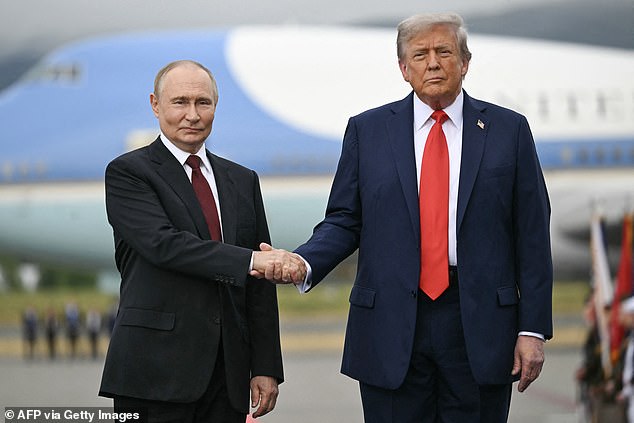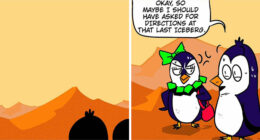Donald Trump will no longer meet Vladimir Putin in Hungary after a phone call between US and Russian negotiators reportedly turned sour.
The meeting was announced last week and was supposed to take place in Budapest, although a date had not been set.
The decision to call it off was made following discussions between US secretary of state Marco Rubio and Russian foreign minister Sergei Lavrov.
It is understood that the conversation did not go well – with Lavrov telling Rubio that Russia would not accept freezing the current front line in Ukraine.
‘An additional in-person meeting between the secretary and foreign minister is not necessary, and there are no plans for President Trump to meet with President Putin in the immediate future,’ a Trump administration official said.
The official, who wished to remain anonymous, nonetheless labelled the call between Rubio and Lavrov as ‘productive’.
The Kremlin also said on Tuesday there was no ‘precise timeframe’ for a summit between Trump and Putin.
The back-and-forth over Trump’s plans for a preparatory peace summit is the latest delay in his efforts to resolve the war that has persisted for nearly four years.

Donald Trump will no longer meet Vladimir Putin in Hungary after a phone call between US and Russian negotiators turned sour

Ukrainian soldiers inspect a vehicle struck by a Russian FPV kamikaze drone on October 16

The decision to call it off was made following discussions between US secretary of state Marco Rubio and Russian foreign minister Sergei Lavrov
Earlier, Ukrainian President Volodymyr Zelensky and European leaders accused Putin of stalling for time to continue his invasion as diplomatic efforts took place.
They also said they opposed any push to make Kyiv surrender land captured by Russian forces in return for peace, as Trump has on occasion suggested.
Eight European leaders, including Sir Keir Starmer, as well as senior European Union officials said in a joint statement they intend to go ahead with plans to use Moscow’s billions of dollars of frozen assets abroad to help Kyiv win the war, despite some misgivings about the legality and consequences of such a step.
Zelensky noted that Putin had returned to diplomacy and called Trump last week when facing the possibility that the US would supply Ukraine with long-range Tomahawk missiles.
But ‘as soon as the pressure eased a little, the Russians began to try to drop diplomacy, postpone the dialogue’, Zelensky said on Tuesday in a Telegram post.
‘We need to end this war, and only pressure will lead to peace,’ he said.
The leaders’ statement laid down a marker by saying they ‘remain committed to the principle that international borders must not be changed by force’.
Trump last month reversed his long-held position that Ukraine would have to concede land and suggested it could win back all the territory it has lost to Russia.
However, after a phone call with Putin last week and a subsequent meeting with Zelensky on Friday, Trump shifted his position again and called on Kyiv and Moscow to ‘stop where they are’ in the war.

Trump and Zelensky are seen meeting at the White House earlier this month
On Sunday, Trump said that the industrial Donbas region of eastern Ukraine should be ‘cut up’, leaving most of it in Russian hands.
Trump said on Monday that while he thinks it is possible that Ukraine can ultimately defeat Russia, he is now doubtful it will happen.
Ukrainian and European leaders are trying hard to keep Trump on their side.
‘We strongly support President Trump’s position that the fighting should stop immediately, and that the current line of contact should be the starting point of negotiations,’ the statement said.
‘We can all see that Putin continues to choose violence and destruction.’
The dynamics of Trump’s engagement with Europe’s biggest conflict since the Second World War have zigzagged as he searches for a peace deal.
Russia occupies about one fifth of Ukraine, but carving up their country in return for peace is unacceptable to Kyiv officials.
Also, a conflict frozen on the current front line could fester, with occupied areas of Ukraine offering Moscow a springboard for new attacks in the future, Ukrainian and European officials fear.
The statement by the leaders of Ukraine, the UK, Finland, France, Germany, Italy, Norway, Poland, Denmark and EU officials came early in what Zelensky said would be a week that is ‘very active in diplomacy’.
More international economic sanctions on Russia are likely to be discussed at an EU summit in Brussels on Thursday.
‘We must ramp up the pressure on Russia’s economy and its defence industry, until Putin is ready to make peace,’ Tuesday’s statement said.
On Friday, a meeting of the Coalition of the Willing – a group of 35 countries who support Ukraine – is due to take place in London.









